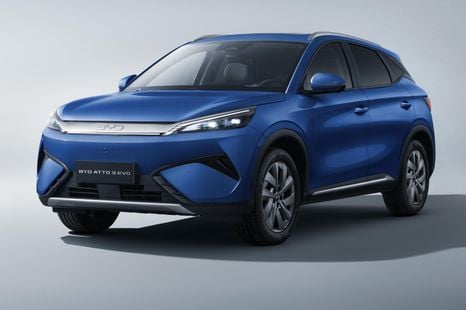

Derek Fung
BYD Atto 3: Much more powerful rear- and all-wheel drive models approved for sale
2 Days Ago

Senior Contributor
Fast-growing electric car brand BYD and Australian service station operator Ampol have announced a partnership focused on home and public charging access.
Ampol is seeking to future-proof its business by installing a network of part-government-funded public chargers, and plans to move into the lucrative home- and fleet-charging wallbox markets.
BYD Automotive plans to be among Australia’s biggest EV brands in the near future but needs to offer buyers seamless charging solutions both at home and on the road.
While details remain vague – today’s announcement was high-level – the plan is for BYD customers to have access to AmpCharge home charging options sold at dealers, subscription bundles for use of public charge sites, and business charge options for fleet operators.
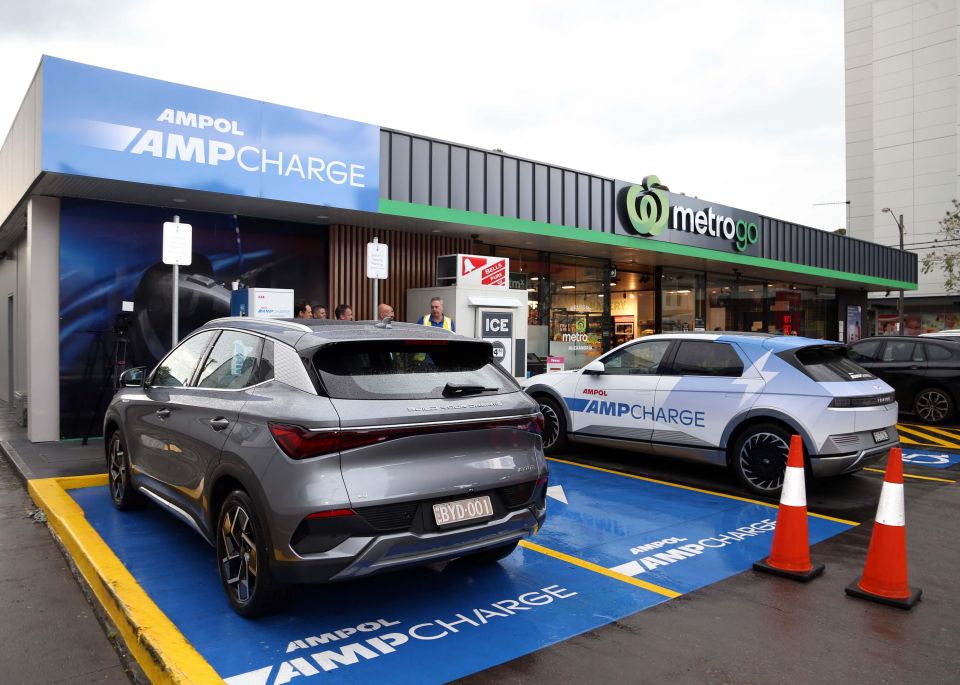
BYD Australia’s distributor, EVDirect, told us today the trajectory is for this “turnkey” co-branded solution to materialise into actual customer offers in a matter of months.
“Ampol is Australia’s leader in transport fuels and has embarked on a strategy to become the Australian leader in EV charging,” said CEO and managing director of EVDirect Luke Todd.
“With the ongoing rollout of AmpCharge across Ampol forecourts and at destinations like shopping centres along with the ability to deliver charging in the home, BYD customers can feel confident they will be able to charge their EV wherever they need.
“Being able to partner with like-minded companies to help everyday Australians and businesses transition to future fuels and energy solutions, is at the very core of BYD’s plans to enable more Australians to have access to and benefit from driving high quality electric vehicles in an affordable and convenient manner.”
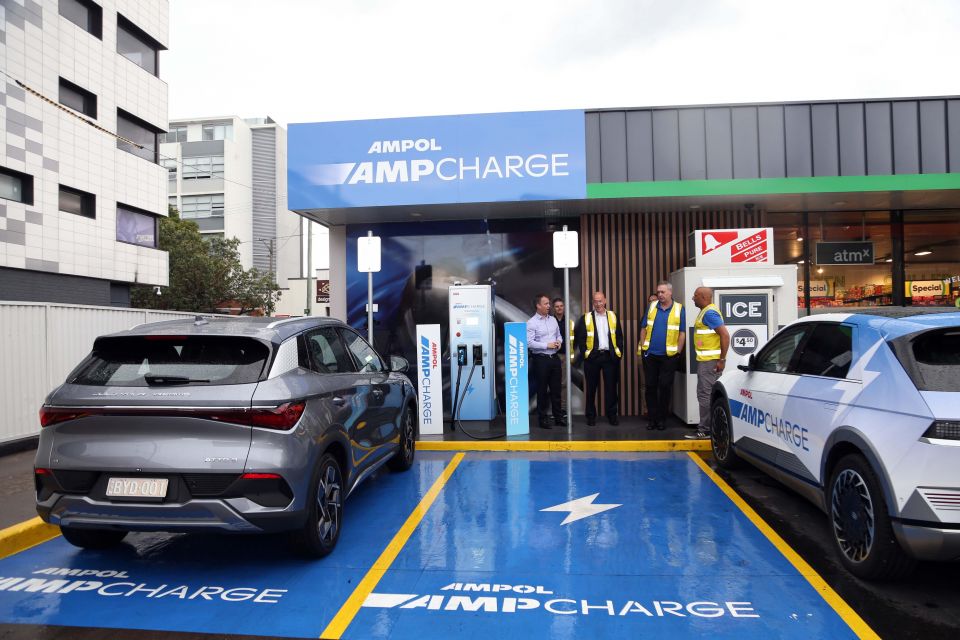
Ampol CEO and managing director Matthew Halliday said Ampol was excited to partner with “a global leader in electric vehicle manufacturing” as its rollout of AmpCharge continues.
“The ongoing roll out of AmpCharge is gathering momentum, with an initial commitment to roll out new fast charging infrastructure to almost 140 locations, including both forecourt and at-destination charging sites. We are also developing our plans for a home and business charging offer,” he said.
“We know fast charging at our retail sites and elsewhere is going to play an important role to reduce range anxiety and provide Australians with the confidence they need to transition to EVs, and this partnership with BYD will further extend our opportunity to support the uptake of battery electric vehicles across Australia.”
Ampol has an initial plan to deliver AmpCharge EV fast charging infrastructure at almost 140 locations – the first of which opened a few months back.
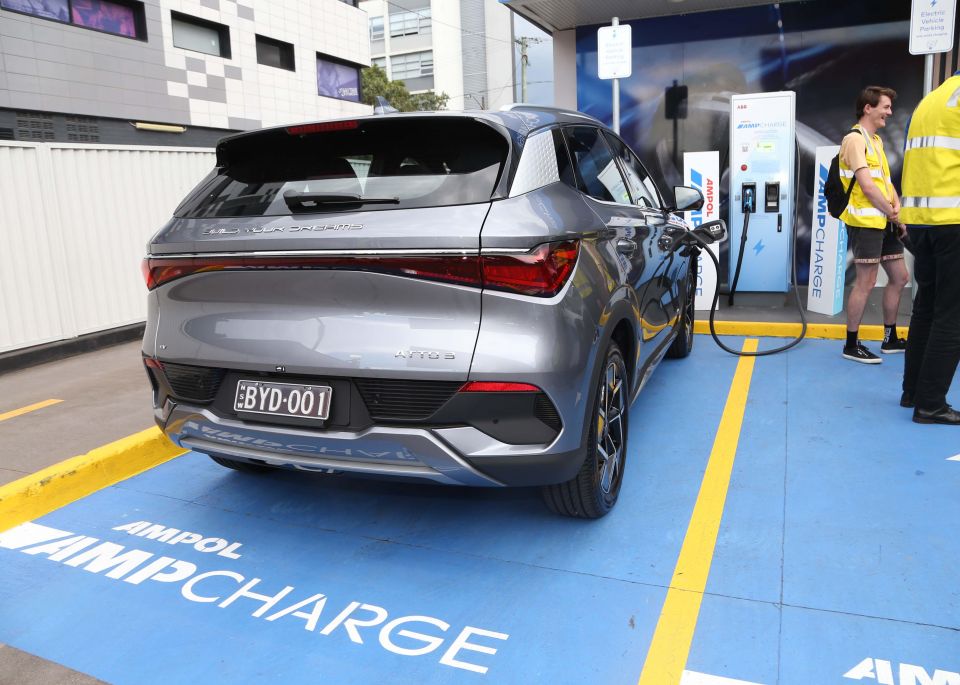
This includes a commitment to 120 sites nationally by December 2023 as part of an agreement with the Australian Renewable Energy Agency (ARENA), with ARENA providing partial funding backed by the federal government.
In addition, Ampol more recently announced plans for 110 fast charging bays at 19 new AmpCharge sites throughout Greater Sydney and regional NSW, co-funded by the NSW government.
The new NSW sites will offer a minimum of four charging bays, with several to offer up to 10 bays, Ampol says. The infrastructure will be located at existing Ampol forecourts on “key commuter routes”, along with new destination charging sites at “major retail precincts”.
Ampol says it plans to commence “detailed design work” on these AmpCharge sites early in 2023. DC fast-charging units will provide “up to 150kW of charge per bay” and have the capacity to charge two EVs concurrently, the company adds.
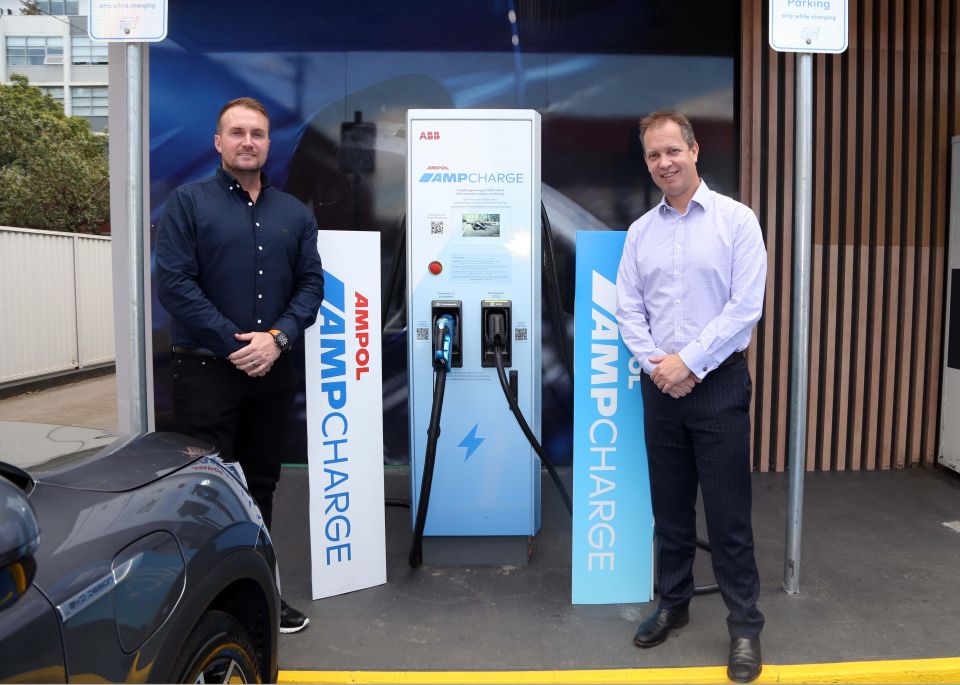
Mr Halliday says his company wants to establish “the leading EV charging network in Australia by 2030”.
AmpCharge’s site currently says the cost is 60 cents per kWh across its sites, paid for via its app or by card. There are no RFID cards available for now.
Ampol’s partnership with BYD Automotive is the second to be announced with vehicle manufacturers.
Earlier this month Ampol announced a partnership with Hyundai to support charging of its battery-electric vehicles with discounts or subscription plans, and to explore the development and use of hydrogen.
Ampol’s rival servo operator BP recently signed a deal with Australian DC charger company Tritium to establish a network of public chargers under its BP Pulse branding. These sites are rolling out now with a price of 55c per kWh – the first located in Melbourne’s outer north-east.

We’re moving to a time where the typical servo has a few EV chargers, then, plus some decent food and coffee inside to spend money on while you wait. Moreover, the Chargefox operation now owned by Australia’s State-based motoring clubs has some serious competition.
Electric vehicle sales are spiking in Australia, albeit from a low base, and there’s some real momentum building.
September 2022 saw EVs hit nearly eight per cent market share for the first time in a single month, while the federal government has now pledged to create a new National EV Strategy paper.
MORE: What electric car buyer incentives are offered across Australia? MORE: Dumping ground no more? Australian Government’s affordable EV push MORE: EVs coming to Australia – launch calendar, and what’s here already?
Go deeper on the cars in our Showroom, compare your options, or see what a great deal looks like with help from our New Car Specialists.


Derek Fung
2 Days Ago
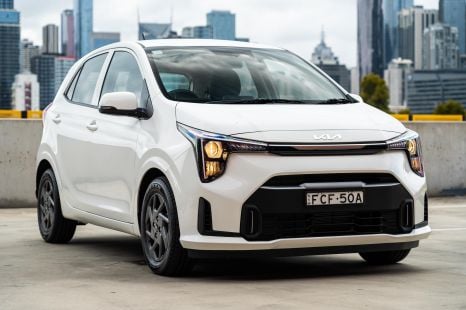

Josh Nevett
6 Days Ago
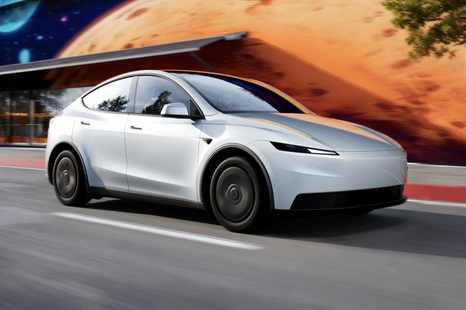
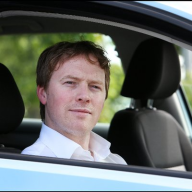
Shane O'Donoghue
6 Days Ago
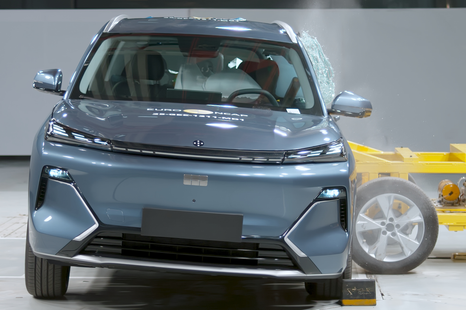

William Stopford
6 Days Ago
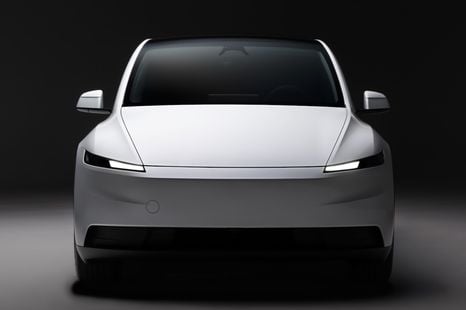

Ben Zachariah
9 Days Ago
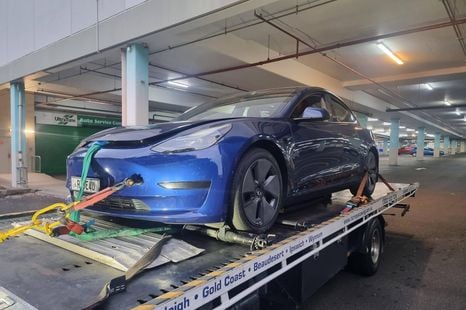

CarExpert
10 Days Ago
Add CarExpert as a Preferred Source on Google so your search results prioritise writing by actual experts, not AI.